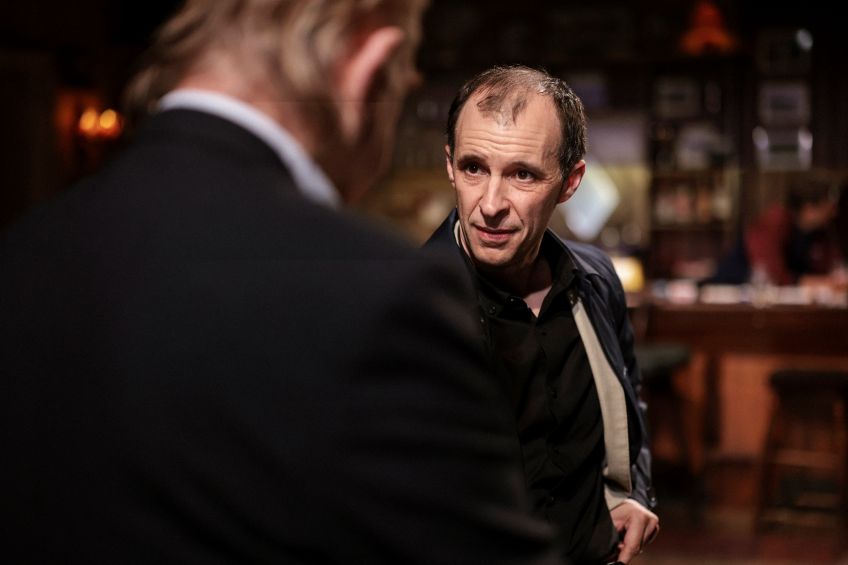Conor McPherson wrote The Weir in 1997 when he was 25 years old. The play, sad, funny, spooky, was hailed a modern masterpiece and he won the Evening Standard Award for Most Promising Playwright.
McPherson directs the present revival which has a fine Irish cast headed by Brendan Gleeson, making a return to the stage after a ten-year absence.
The setting, a run-down pub deep in rural Ireland. Finbar, who has moved up in the world, introduces the landlord and his two regulars to Valerie, a young Dublin woman, who has moved into the area.
The men vie with each other for her attention by telling stories of fairies tapping at doors and windows and spectres appearing on staircases. Most horrific of all is the account of the stranger in a graveyard who turns out to be a dead paedophile who wants to be buried in a little girl’s grave.
The tales work in their own right but they gain immeasurably from their juxtaposition with each other and this is especially true when Valerie tells her story, a painful and true story, which has nothing whatever to do with folklore.
She describes the day her young daughter unexpectedly died and then goes on to talk about the telephone call she received from her after her death begging her to come and rescue her.

What binds the stories is the loneliness and grief of the group. The storytelling is cathartic for them all.
Gleeson, a massive powerful presence, has a fine and moving monologue in which he remembers the girl he had loved thirty years ago and should have married.
There is an extraordinary, fascinating, jerky performance by Tom Vaughan-Lawlor which will surely win him an award for best supporting performance. He is so animated; face, hands, legs, body never stop moving.
Conor McPherson’s The Weir, which runs 1 hour and 40 minutes without interval, has and will continue to have a particularly strong and haunting appeal for Irish audiences; and deservedly so.
But I should, perhaps, warn non-Irish theatregoers that some of them may have difficulty with the actors’ Irish accents and not always completely understand every word and every sentence.
To learn more about Robert Tanitch and his reviews, click here to go to his website. 




